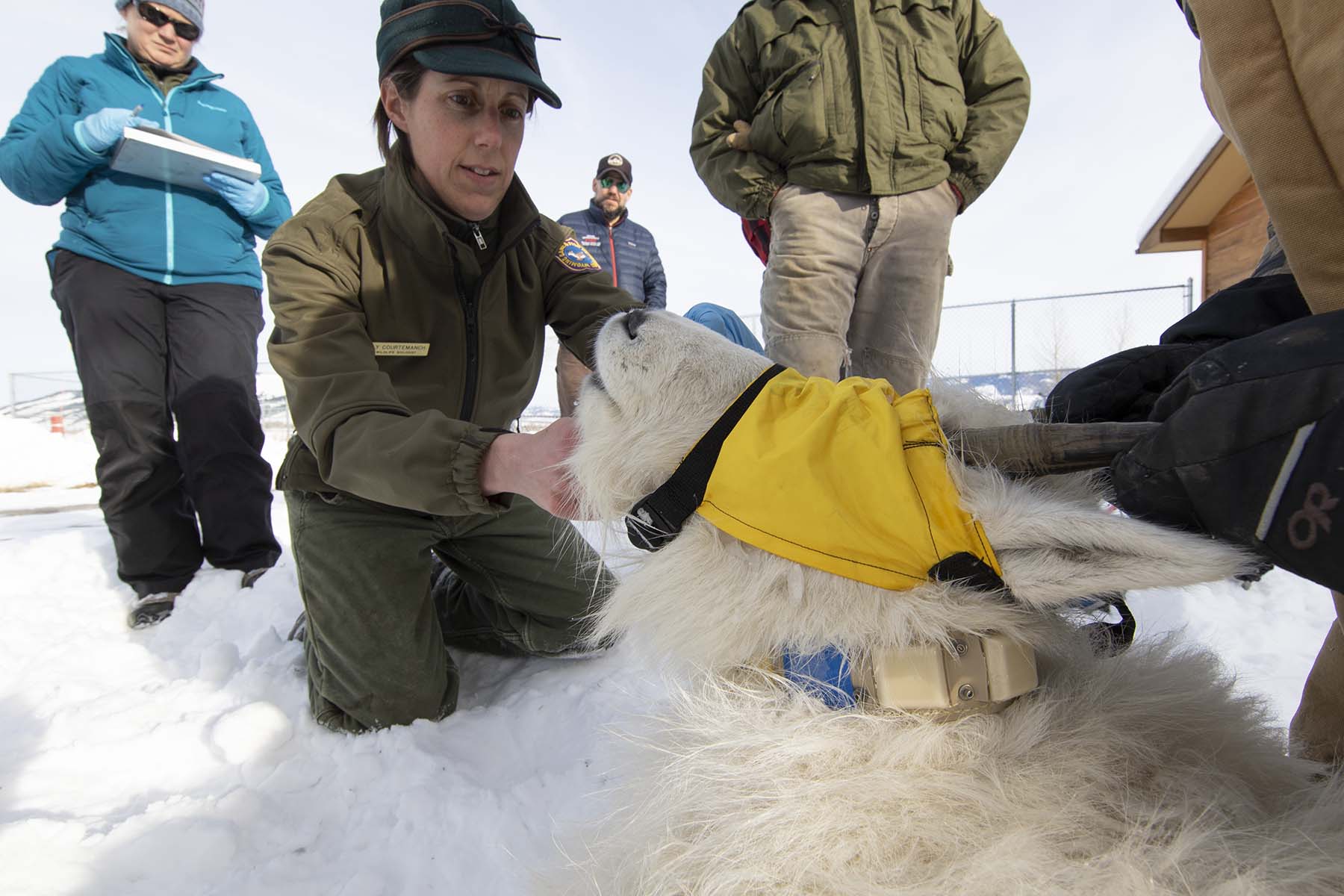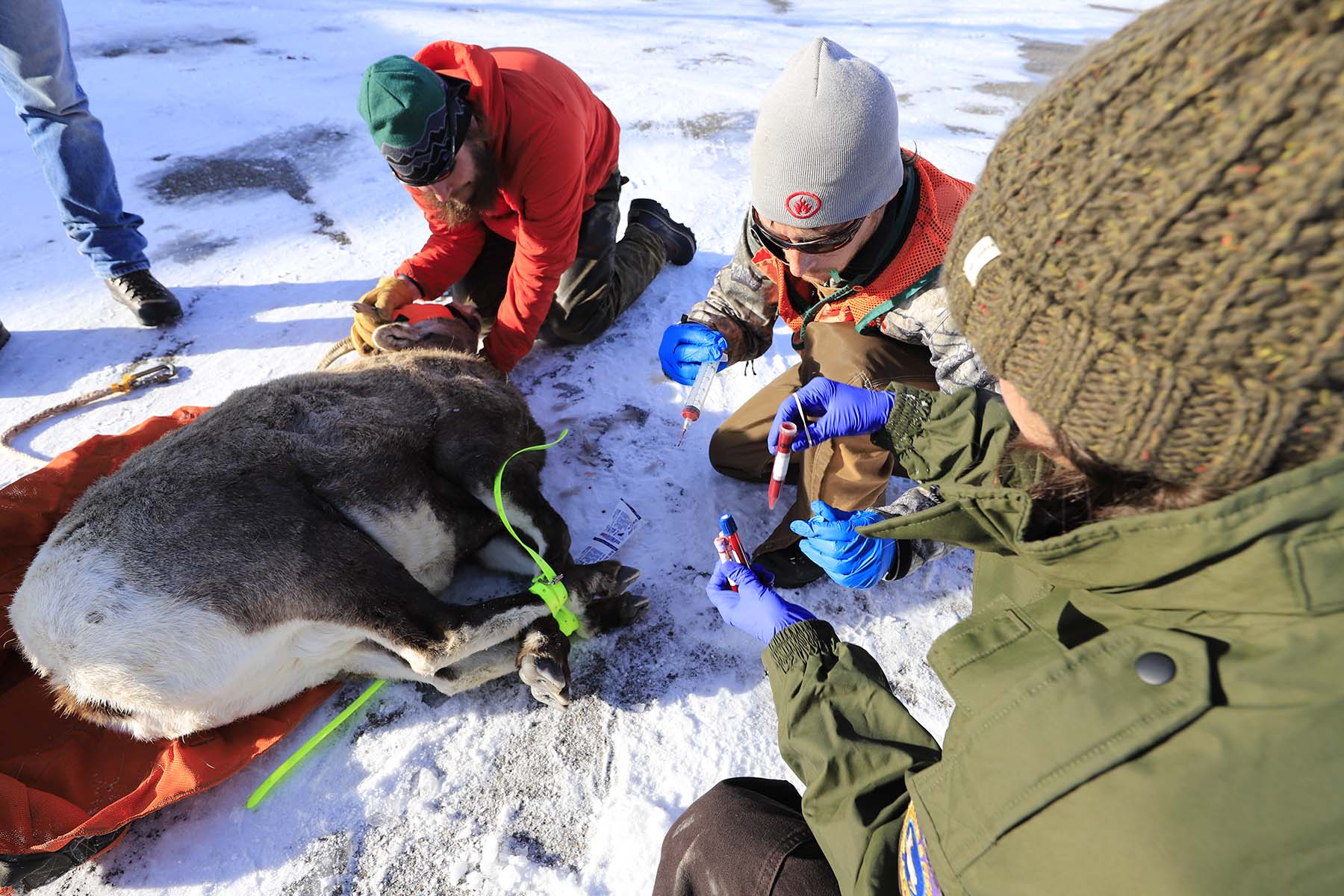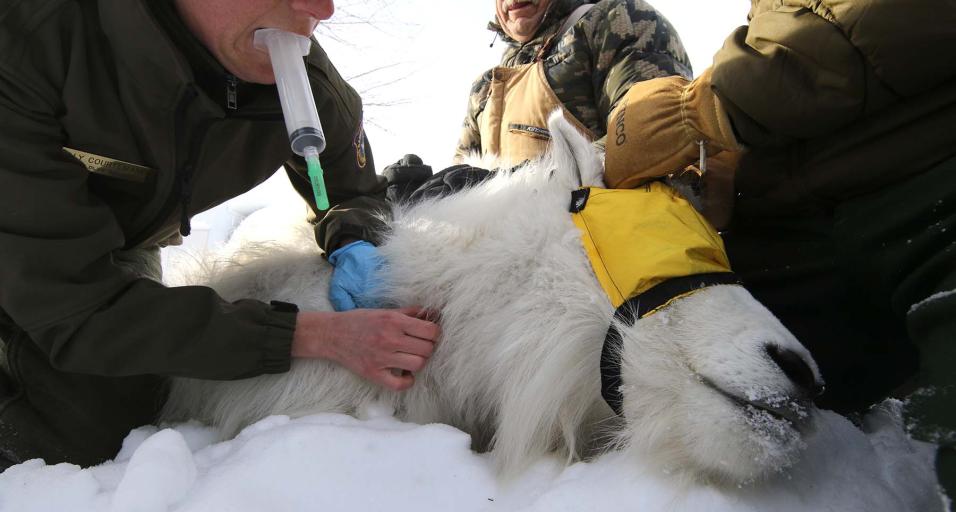Teton Sheep and Goats Tested & Collared
Wyoming Game and Fish biologists joined their counterparts from Grand Teton National Park in an effort to capture and collar Teton bighorn sheep and mountain goats that have become headline news in recent weeks. Grand Teton National Park officials recently released their proposal to remove the non-native mountain goats to relieve their competition with the native Teton Bighorn Sheep Herd.

The capture effort only yielded two bighorn sheep and one mountain goat due to challenging weather conditions and the difficulty of capturing the animals in the high crags they inhabit. The purpose for the captures was to get biological samples to further investigate what pathogens both animals are carrying. The Teton sheep herd is, to date, considered an isolated and "naive" herd, not having been exposed to many of the infectious pathogens that cause pnuemonia, which has caused significant declines in many Rocky Mountain sheep populations across the West. Mountain goats are known to carry many of these lethal pathogens contagious to bighorn sheep.

Biologists also are putting GPS collars on the animals to further understand where these two species are spending their time in the range and how much overlap there is in their seasonal distribution. Thus far, the bighorn sheep have generally occupied the northern and southern ends of the range while the mountain goats have primarily been found in the central part of the range, but as mountain goats have expanded there appears to be more co-mingling of the two species. Biologists noted a bighorn ram within approximately 30-40 yards of some mountain goats during a recent aerial survey that was conducted.
Biologists continue to monitor this situation with great interest as it is proving to be one the more challenging emerging wildlife issues here in the Jackson Region.
The capture effort only yielded two bighorn sheep and one mountain goat due to challenging weather conditions and the difficulty of capturing the animals in the high crags they inhabit. The purpose for the captures was to get biological samples to further investigate what pathogens both animals are carrying. The Teton sheep herd is, to date, considered an isolated and "naive" herd, not having been exposed to many of the infectious pathogens that cause pnuemonia, which has caused significant declines in many Rocky Mountain sheep populations across the West. Mountain goats are known to carry many of these lethal pathogens contagious to bighorn sheep.
Biologists also are putting GPS collars on the animals to further understand where these two species are spending their time in the range and how much overlap there is in their seasonal distribution. Thus far, the bighorn sheep have generally occupied the northern and southern ends of the range while the mountain goats have primarily been found in the central part of the range, but as mountain goats have expanded there appears to be more co-mingling of the two species. Biologists noted a bighorn ram within approximately 30-40 yards of some mountain goats during a recent aerial survey that was conducted.
Biologists continue to monitor this situation with great interest as it is proving to be one the more challenging emerging wildlife issues here in the Jackson Region.
Mark Gocke, Public Information Specialist, 307-733-2321

